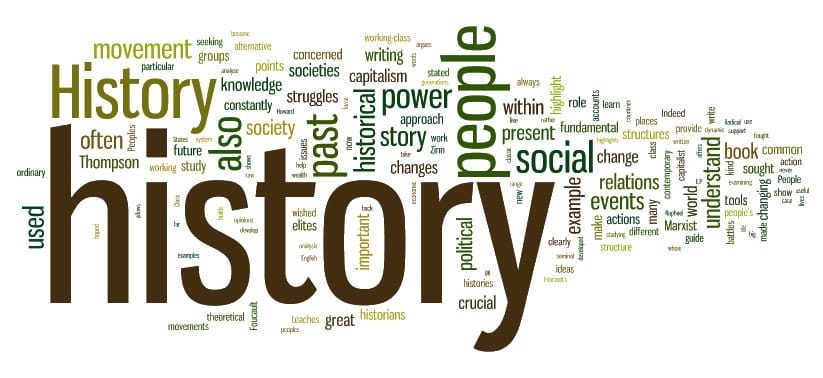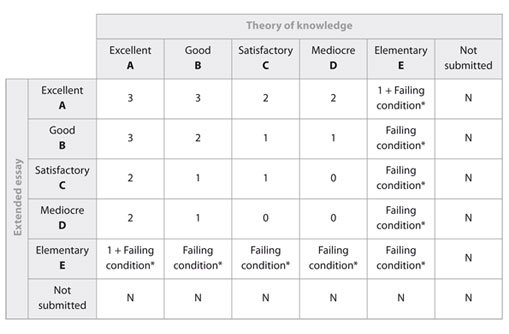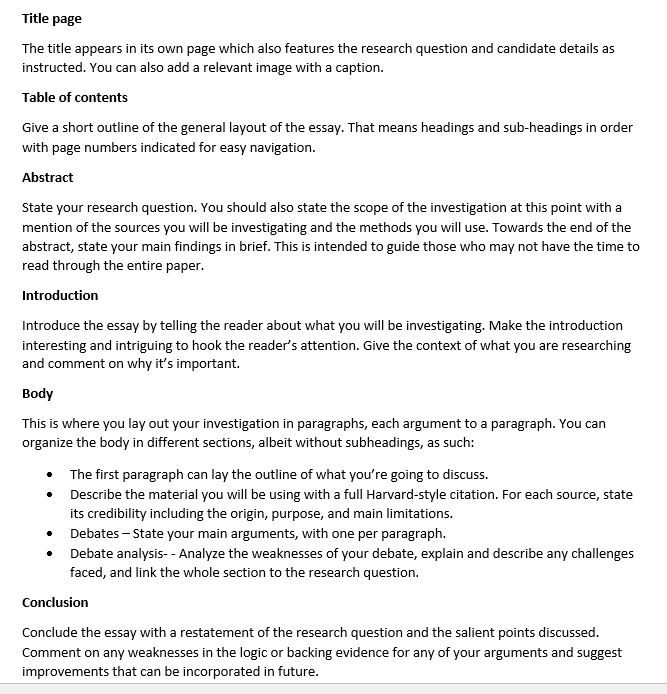

- Customer Reviews
- Extended Essays
- IB Internal Assessment
- Theory of Knowledge
- Literature Review
- Dissertations
- Essay Writing
- Research Writing
- Assignment Help
- Capstone Projects
- College Application
- Online Class

History Extended Essay: Definition, Outline, Assessment Criteria
0 Comments
by Antony W
September 3, 2022

History Extended Essay is an assignment that gives you the opportunity to conduct in-depth research in an area of your interest – and of local, regional, and global significance.
Your research should clearly demonstrate a structured essay that addresses your research question in-depth.
The research question should encourage investigation that leads to in-depth analysis and critical commentary.
Rather than focusing on the “how” or “what” type of questions, focus on the “how successful” or “how significant” questions because they get you involved in comprehensive analysis of the issue you want to investigate.
Writing an extended essay in history isn’t hard, but it can be challenging if you struggle with history topic selection , extensive research, and writing.
That’s why we’re here to help.
Don’t let your IB History Extended Essay give you sleepless nights or wait until the last minute. Hire our team of IB experts to help you write and score an A in the subject.
- Get 100% unique history EE written on any topic and completed on time.
- Take advantage of our 25% off discount on your first order if you’re new to Help for Assessment
However, if you have the time to write your History EE and you need a complete guide to help you through the process, keep reading.
What is IB History Extended Essay?

What is IB History Extended Essay?
An IB History Extended Essay is a 4,000-word long essay that offers a more in-depth exploration of a topic of your interest with an emphasis on primary sources.
The Extended Essay in History requires thorough, independent research of the topic.
As you work on the essay, you’ll develop and sharpen your research, analytical, and communication skills.
By the time you complete this assignment, you’ll not only have a clear idea of the kind of research professors will expect you to do in university but also develop the capacity to analyze, evaluate, and synthesize knowledge.
How to Write a History Extended Essay Based on the Assessment Criteria

The following assessment criteria will help you to write a comprehensive, A-level Extended Essay in History:
1. Focus and Method (6 Points)
Your research issue must be historical, confined to a specific period, country, people, or events that took place 10 or more years ago.
Make the research question specific and straightforward to allow in-depth analysis and wide enough for the word limit.
To get an A, ensure your history essay topic is accurate, properly focused, and clearly stated. Your research methodology must be exhaustive, effective, and credible.

2. Knowledge and Understanding (5-6 Points)
Demonstrate that you understand the research question you selected in the wider historical context.
Also, you should show a proper use of relevant historical terms and concepts and, while you’re at it, stick to the ten-year rule.
To get a 6, show in your History Extended Essay an in-depth knowledge and understanding of the selected topic. Then, use the methods learned in the coursework and textbooks to explore the topic effectively.
3. Critical Thinking (12 Points)
To get 12 points for critical thinking, your History Extended Essay should demonstrate a crucial engagement with the past .
Don’t quote what you read from other sources.
Instead, go as far as to explore and analyze the sources to come up with a compelling argument supported by analysis of the research material followed by consistent conclusions.
Examiners are interested in your analytical skills, not your ability to describe historical events. Once you’ve identified your position relative to your sources, draw convincing arguments for or against it.
Follow that by giving an analysis of the evidence, making sure you explain how reliable and/or accurate you think the evidence is.
Overall, your essay must have:
- A reasoned argument developed from your research
- A critical evaluation of your research
- A structure and coherent argument where minor inconsistencies don’t hinder the main argument or invalidate the conclusion
- A conclusion consistent with the material analyzed
4. Presentation (4 Points)
Presentation evaluates how well you’ve structured your essay in relation to the acceptable academic standards.
- Include section structure with a logical arrangement and the required formatting.
- Use charts, graphs, tables, and related figures ONLY where you feel they illustrate points more clearly, and make sure you name and explain them well.
- Acknowledge figures, calculations, text, and any other element used directly from a source.
Because your intention is score good marks for presentation, your History Extended Essay should have a clear layout that supports and simplifies the reading and evaluation of the work.
5. Engagement (6 Points)
Engagement evaluates how well you interact with the research process.
To score a six, you need to demonstrate a high level of engagement with clear insights so that your supervisor can clearly see your thoughts and decision-making process.
To do this, give clear evidence for your conclusions without making assumptions.
The best way to explain personal engagement is y being critical with your own methods and conclusion, even to the extent where you show where you think you should have done better.
If you can describe the challenges you face and the solutions you adopted, you’ll score a six.
Your reflections also count as far as engagement is concerned.
If anything, you need to make sure they communicate a high degree of intellectual and personal engagement with the research question developed during the initial stages.
Lastly, ensure you us your own voice to show authenticity, a creative approach, and an intellectual initiative.
History Extended Essay Format/Outline
What remains now is to write your essay.
But first, since organization counts towards the total points for presentation, we need to outline the essay in an acceptable extended essay format.
Here’s one example.

You should note that the title page, table of contents, bibliography, appendix, and the various figures do not count towards the word count.
However, figures with a lot of words will be added. Also, anything past 4000 words will not be read or graded.
We already have a full article on how to choose a history EE essay which you can check out here on our blog's article section. You will also find lots of sample topics to help you get started.
About the author
Antony W is a professional writer and coach at Help for Assessment. He spends countless hours every day researching and writing great content filled with expert advice on how to write engaging essays, research papers, and assignments.

IMAGES
VIDEO